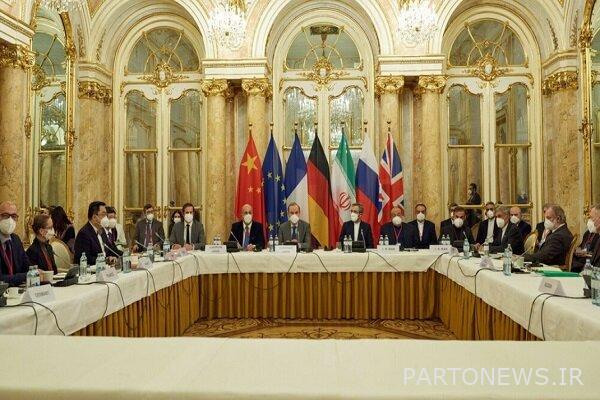Fictitious deadlines hinder progress in Vienna talks – Mehr News Agency | Iran and world’s news

Mehr News Agency – International Group: Tehran Times newspaper On the eve of the start of the eighth round, today’s report was dedicated to the Vienna talks.
The previous round of talks ended more than a week ago with an agreement on some general principles on which the next round is to be based. The seventh round, meanwhile, was marked by many ups and downs due to Western opposition to the change achieved by the Iranian presidential election.
Tehran Times writes in this regard: The new negotiating team headed by “Ali Bagheri”, Deputy Foreign Minister of Iran, went to Vienna with a series of new proposals in the field of lifting sanctions and nuclear measures, which were presented to the other side in the form of two documents.
However, despite Iran’s insistence that the proposed drafts be the subject of negotiations, the United States and the European troika preferred to accuse Iran of lack of cooperation and seriousness in advancing the negotiations. They also rely on their delusions; They began to predict the failure of the negotiations.
Tehran Times further wrote: On the other hand, Iran emphasized its seriousness to reach a good and fast agreement. Iranian Foreign Minister Hossein Amir-Abdollahian also stressed in a phone call with EU foreign policy chief Joseph Borrell that a good deal was available.
“We believe that a good agreement is available, but it requires a change in the approach of some parties from the literature of threat to the literature of cooperation, mutual respect and results,” he said.
Amir Abdullahian also mentioned in a Twitter message that an agreement is available if the West shows goodwill.
The Tehran Times writes: “Although Iran has made a good deal conditional on the goodwill of the West, the Europeans and American partners have shown no inclination to pursue negotiations in good faith.” Following the policies of the Trump administration, they did everything in their power to make the Vienna talks a starting point or a platform for their next talks with Iran. In other words, the Western negotiators are not in Vienna to return exclusively to the 2015 nuclear deal, the so-called Comprehensive Joint Action Agreement, but to impose an incomplete version of the UN Security Council on Iran Among them are the talks they believe they will have with Iran in the future; They maintain. Such a goal is contrary to the provisions of Barjam.
For example, the United States has divided anti-Iranian sanctions into three main categories. Non-negotiable red sanctions, negotiable yellow sanctions, and finally green sanctions that are to be lifted after the agreement is revived. In addition, the United States seeks to use yellow sanctions to “strengthen and prolong” the UN Security Council.
The Tehran Times writes in this regard: Iran rejects this classification and argues that the purpose of all sanctions imposed on Iran since 2015 is to disrupt the UN Security Council and is therefore inconsistent with the principle of the agreement. Meanwhile, the United States is struggling to make some sanctions compatible with the UN Security Council and make them permanent.
In short, as Iran seeks to revive the principle of the agreement, the United States, along with the European troika, seeks to revise the principle of the agreement.
The Tehran Times finally writes: Now, with the resumption of the Vienna talks (eighth round), the United States and Europe are seeking to instill a sense of urgency and set artificial deadlines in order to put pressure on Iran. Currently, Western diplomatic circles are talking about an early January deadline for concluding the Vienna talks.
US Secretary of State Anthony Blinken recently claimed that the window to revive Burjam was closing. He added: “I do not intend to limit the time or tell you how many meters are left until the end point.” I can only say that yes, this distance is getting much, much shorter.
The US envoy to Iran, Robert Mali, has also claimed that if Iran (its nuclear program) continues at its current pace; Just a few weeks and no more (we have time to reach an agreement) and at this point, the result will be that there is no agreement on resuscitation.
The allegations come as Iran has made it clear that although it wants a speedy agreement, it will not sacrifice its interests to arbitrary deadlines.
.

